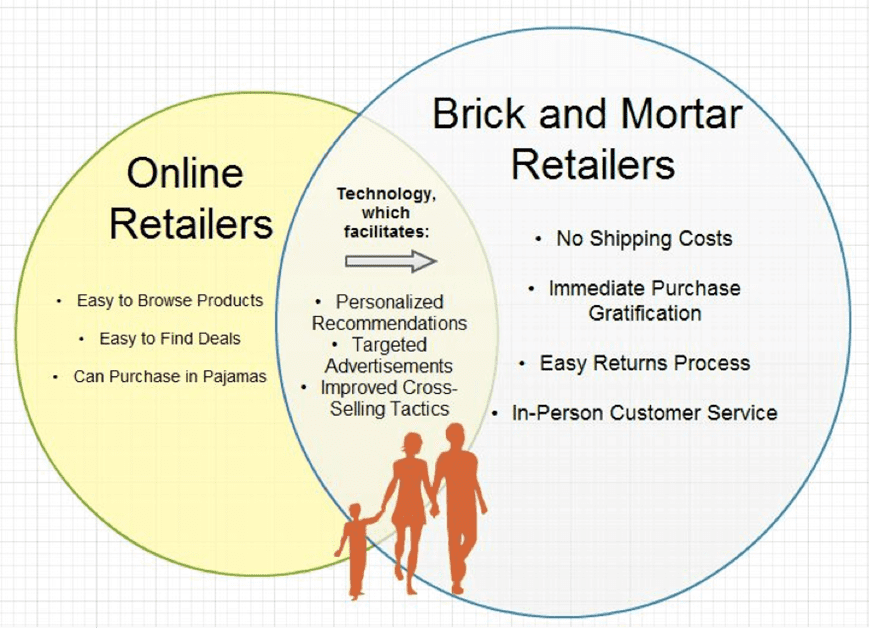Why You Need A Physical Address and Online Address for Your Business
Thanks in large part to Amazon, book stores across North America have closed their
doors for good. Small booksellers just can’t compete with Amazon’s huge selection and low prices.
But what will become of traditional brick and mortar stores in other sectors? Will online shopping take over everything– or is there still room for traditional retailers to grow?
Should all businesses focus on increasing their online sales numbers– or are in-store sales figures equally important?
Let’s take a closer look at the latest trends and see if we can find some answers.
Why Online Brands Are Opening Brick-and-Mortar Stores
Online athletics brand Fabletics recently opened several “real life” stores in malls across the US. So did the subscription-based makeup service Birchbox.
What exactly is going on here? Are traditional retail stores making a comeback?
According to the chair of New York-based law firm Tarter Krinsky & Drogin’s retail practice group Giuliano Iannaccone, it makes sense for online brands to consider opening brick-and-mortar stores.
Real-life stores can help boost your company’s prestige. Also, brick-and-mortar stores can help improve your name recognition among people who don’t normally shop online.
Why Malls Love Brands That Became Famous Online
According to Iannaccone, malls are constantly looking for ways to draw more young shoppers. Because young people are more likely to shop online, most online brands have a larger millennial following compared to competing brands. That’s why more malls are allowing online brands to come in and set up shop.

3 Ways Brick-and-Mortar Stores Can Stay Competitive
The “online brand to brick-and-mortar shop” trend proves that traditional retail stores can still make money. But if you fail to make good investments today, you’ll soon get left behind.
Here are three ways to stay competitive if you own brick-and-mortar stores.
- Try reverse showrooming. One problem traditional retailers face is that sometimes customers try out a product in the store, but end up buying it later online. Sunglasses vendor Luxottica recently unveiled an innovative solution to this troublesome issue: reverse showrooming. On the company’s website, customers can design their own custom pair of Ray-ban shades. Then, they can come out to the store to try them on and buy them.
- Invest in robots. One of the main reason why online stores are cheaper is that virtual inventory systems are more efficient. But all that is changing. According to a recent ZDnet article, retail robots are coming. Automated inventory bots are cheaper in the long run compared to humans, plus they capable of tracking inventory more accurately. Experts are predicting that automation will soon allow brick-and-mortar stores to compete with online prices.
- Partner up. Coffee and books seem to go together. That’s why Chapters bookstore and Starbucks recently formed an alliance. In some Starbucks coffee shops, patrons can check out a NYT bestseller while sipping on a fresh cup of joe. These types of partnerships will become increasingly common as brick-and-mortar stores strive to create unique experiences for their customers that “online only” businesses can’t offer.
Need help developing the digital side of your business operation? Contact Above the Fold Media Today
For more about effective SEO strategies for small business that yield real results please contact Above the Fold Media today by calling 416-477-1862 or following us on Twitter and Facebook.